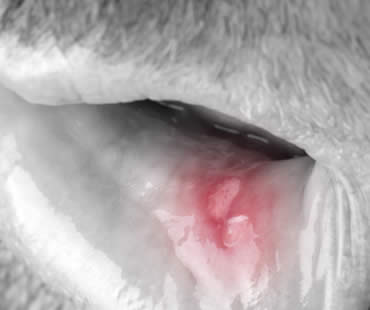
The first impression you make on the world often starts with your smile. Dingy, dull, crooked or chipped teeth create the appearance of an “old” smile, making you look older than your actual years. Restoring your smile’s youthful look is an easy way to subtract years from the image you portray to the world. Thanks to advances in modern cosmetic dentistry, your smile can appear as young as you feel.
As tooth enamel thins with age, teeth lose their shine and appear darker. Thin enamel also causes teeth to weaken, making them easier to chip and causing wear and shifting. Cosmetic dentistry offers many procedures and treatments to address these problems and help return your smile to a younger, more vibrant state. Just a few options you may want to consider include:
- Professional teeth whitening to improve the color of teeth that have been darkened by stains or discolored from age.
- Porcelain veneers and bonding to correct gaps, chips, and teeth with uneven lengths. Veneers can also reshape teeth, restoring the youthful appearance created by longer teeth. Veneers can also be used to build up your back teeth to support the cheekbones, replacing the fullness lost with aging and giving your face the appearance of a “lift”.
- Orthodontia with either clear or traditional braces corrects the misalignment caused by teeth that shift as you age.
If your desire is to look as youthful as you feel, cosmetic dentistry may be a perfect solution to address the problems of an aging smile. Many procedures can be completed in as little as one office visit, with little to no recovery time. Consult with a qualified cosmetic dentist to find out how you can achieve a younger, more perfect smile.
If you need a dentist in Meriden contact us today

Problems with your mouth or teeth can occur suddenly. You might be injured playing a sport, eating, or even just while doing a seemingly harmless activity. You should know what types of dental problems are considered emergencies, and what to do while waiting to see your dentist. Quick action can make a big difference in saving a tooth, or limiting damage to your mouth or face.
What is considered an emergency?
Not every dental problem must be treated as an emergency, but some do require professional treatment as soon as possible. This includes a broken or knocked out tooth, lost crowns and fillings, severe toothache, infection, and injuries to the soft tissues of your mouth.
What should I do?
See your dentist as soon as possible to treat the problem and prevent further damage. Here are some steps to take if you experience any of the following common dental emergencies:
- Severe toothache – rinse your mouth with warm water and floss to remove trapped food.
- Swelling – apply a cold compress on the outside of the swollen area. Do not place any painkiller or aspirin against your gums, because it can burn your gum tissue.
- Chipped or broken tooth – if possible, save the piece that has broken off. Rinse both the piece and your mouth with warm water. If it is bleeding, hold gauze on the area. Apply a cold compress to relieve pain and reduce swelling.
- Lost filling – apply dental cement from your drugstore to fill the hollow area until you can see your dentist. Or, try placing a bit of sugarless gum into the area.
- Lost crown –try to replace the crown on your tooth and hold it in place temporarily with dental cement, denture adhesive, or toothpaste.
- Abscess – infections in your mouth can become abscessed, which is a serious condition. Rinse with warm salt water and see your dentist immediately.
- Soft tissue injuries – treat damage to your gums, cheeks, tongue and lips by rinsing with warm salty water. Hold gauze to the specific area to control bleeding, and hold a cold pack to the external area.
If you need a dentist in Meriden contact us today

Kids don’t always play it safe or make the best decisions when it comes to protecting their teeth. Tooth decay and mouth injuries are just a couple of things parents must worry about for their kids, whether it’s the elementary school or college years. Here are some simple ways that parents can teach their kids to protect their teeth.
Limit sports and energy drinks.
Sports and energy drinks are both heavily marketed toward today’s youth. It is true that sports drinks help replace electrolytes during exercise, but many people drink them too much or outside the exercise realm. Experts have deemed sports drinks to be unnecessary in the lunchroom or as a snack on the playground. The high acid levels in these drinks can erode tooth enamel, with energy drinks determined to cause twice as much damage. It is recommended to save sports drinks for very strenuous activities, and instead stick with water for hydration and refreshment without the negative effects.
Insist upon mouthguards.
Parents should provide mouthguards for kids in nearly any sport, even if it isn’t considered mandatory by the school or team. Mouthguards can prevent chips, fractures, or knockouts of teeth, as well as protect the soft tissues of the mouth. According to research estimates, 3 million teeth were knocked out in youth sports in 2011. Dentists suggest that athletes who don’t wear mouthguards are 60 times more likely to sustain oral injury. Inexpensive basic mouthguards or the boil-and-bite variety are available at sporting goods stores, or customized mouthguards can be purchased through your dentist.
Say no to oral piercings.
Although it applies primarily to teenagers and older, the Academy of General Dentistry advises against oral piercing for active people. Those with piercings should remove them before participating in sports, because puncture wounds can lead to infections related to increased blood flow and breathing rates during exercise. If your child is considering and oral piercing, make sure you discuss the risks and need for removal during physical activity.
If you live in the Meriden area contact us today

The word cancer strikes fear and dismay in most people, and it’s no different when the diagnosis is oral cancer. Nearly 37,000 Americans are diagnosed with this disease each year and about 8,000 succumb to it. You should know the risk factors and symptoms so that you can either avoid it completely, or catch it early enough that you’ll have the best chance of recovery.
Who is at risk?
Oral cancer is not contagious, but there are some activities that put you at higher risk for the disease. Both smoked and smokeless tobacco are linked to oral cancer, and the more you use tobacco the greater your risk becomes. Excessive alcohol consumption also increases your risk, and paired with tobacco use your risk is even higher. Sun exposure heightens your chances of developing cancer of the lip.
What are the symptoms?
Oral cancer patients may experience any of these signs of the disease:
- A sore in the mouth or throat that bleeds often and doesn’t heal within two weeks
- A thick area or lump in the cheek
- Patches in your mouth or on your lips that are red, white, or a mixture of the two
- Pain or difficulty swallowing
- Difficulty wearing your dentures
- A sore throat
- Tongue or mouth numbness
- Difficulty chewing, or moving your jaw or tongue
- Earache
What should I do if I have symptoms?
If you notice any of these signs, visit your dentist right away to get screened for oral cancer. When diagnosed early, there is an 80 percent survival rate. Unfortunately many patients wait too long to see their dentist, and late-stage diagnosis is the reason for most oral cancer deaths.
Schedule your appointment at our Meriden dental office

Proper dental care is vitally important for every member of your family. Children should begin visiting a dentist as soon as their first tooth erupts, which in most cases is by their first birthday. Your family dentist is trained to take care of both adult and pediatric dental needs. An experienced family dentist can offer a wide array of dental care services to the children in your family.
A family dentist can perform routine pediatric oral exams and twice yearly professional cleanings, as well as other preventative care such as treatment with fluoride and protective sealants. In the unfortunate case your child should suffer trauma to a tooth, your family dentist is available to treat a loose, broken, or knocked-out tooth. Your dentist can diagnose and treat gum disease, tooth decay and cavities as well as identify and treat misaligned or crooked teeth and jaw or bite problems.
Your family dental practice may also offer a variety of kid-friendly amenities to make visits to the dentist less stressful. Game rooms, televisions with kid videos, and treasure box treats are just a few of the things that might be available to help your child feel at ease.
As your child ages, there will be no need to switch dentists because your family dentist can treat your child from infancy to adulthood. Having the same dentist for your entire family makes life easier when it comes time to schedule routine examinations. Often you can schedule several family members at the same time. Your family dentist will be familiar with your entire family’s dental history, which is a major benefit of taking everyone to the same dentist.
When the time comes to choose a dentist for your children, you can feel confident your family dentist will provide a lifetime of excellent dental care.
If you need a dentist in Meriden contact us today

Teeth that cause you to be embarrassed about your smile may be hidden using a popular cosmetic dentistry technique called veneers. Broken, chipped, discolored, or misaligned teeth can easily be hidden with this long-lasting dental solution.
Veneers are very thin shells, usually made of durable porcelain, placed over your teeth to hide the flaws. It is a simple process for your dentist to attach them to your teeth, and you and your dentist can even choose the color of your veneers for the most natural and appealing look. The process is pain-free and does not require lots of time at your dentist’s office. Veneers feel like regular teeth and do not cause irritation of your gums.
One of the greatest things about veneers is that the porcelain resists stains, so you can eat and drink whatever you would like without avoiding items that are known to discolor teeth. Caring for veneers does not require anything additional to your normal oral hygiene routine. Proper maintenance will help keep your veneers looking great and your teeth healthy.
Finding a dentist to do your veneers is usually easy. Many dentists practice this technique, it is just a matter of inquiring to find out which ones provide the service and determining who you are most comfortable with to do your dental work. You should make sure that the dentist you choose is experienced and qualified in providing dental veneers. Asking for before and after photos of other patients with veneers is a good idea too.
Once you have chosen a dentist and decided together that veneers will be helpful in your case, you will be on your way to a beautiful smile.
Schedule your appointment at our Meriden dental office














